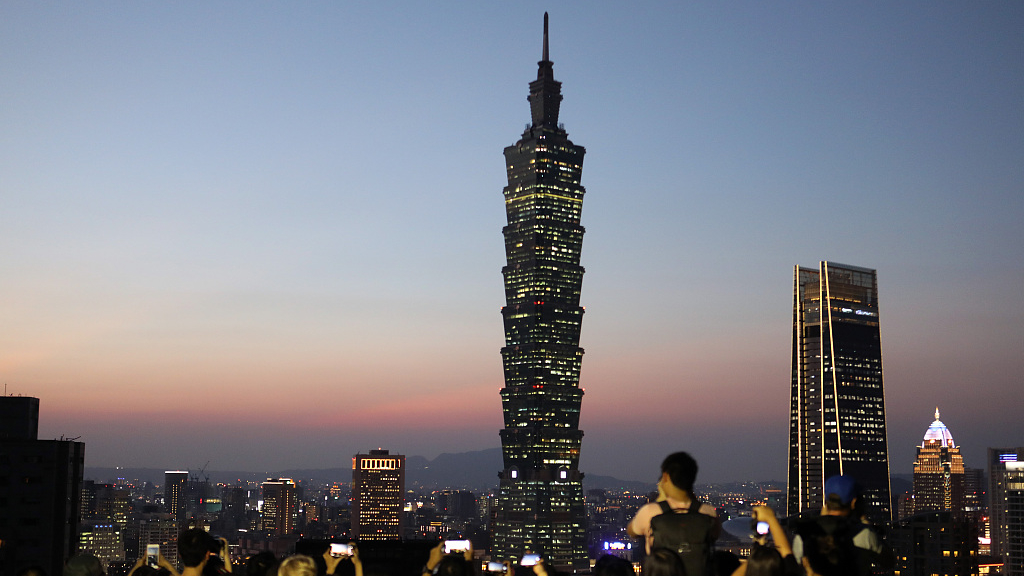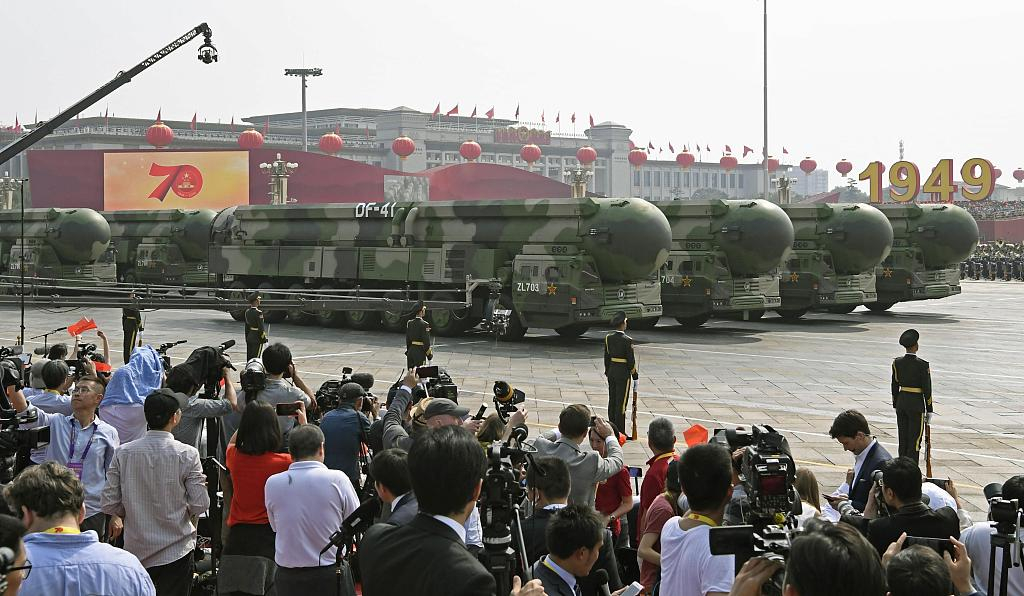
Tourists enjoying sunset in Taipei. /VCG Photo
Tourists enjoying sunset in Taipei. /VCG Photo
The U.S. Senate passed the Taiwan Allies International Protection and Enhancement Initiative (TAIPEI) Act of 2019 on October 29 in an effort to "support Taiwan's standing on the international stage," according to U.S. Senator Cory Gardner. The U.S. House of Representatives Foreign Affairs Committee cleared the bill unanimously the next day. A floor vote is expected to happen soon.
Combined with The Taiwan Travel Act of 2018 and the selling of U.S. fighter jets to Taiwan, the U.S. has become more willing to breach Chinese sovereignty. Its involvement with Taiwan and legislations targeting Hong Kong, Tibet, and Xinjiang are creating tensions in the China-U.S. relationship. Congress is turning a deaf ear to China's repeated objections over these actions.
Jin Canrong, deputy dean of the School of International Studies at Remin University of China, sees this trend as the result of the U.S.'s strategic shift in its policy towards China. According to Professor Jin, since former U.S. president Richard Nixon's visit to China, the U.S. government had tried engagement, with the ultimate goal of seeking economic and possibly political liberalization in China. This policy direction ended in 2015 when Dr. David M. Lampton, professor and director of China Studies at the John Hopkins University, gave a speech titled "Tipping point in U.S.-China relations." Starting then, the U.S. government began viewing China as its chief competitor.
These "increasingly reckless" violations of Chinese sovereignty, in Professor Jin's words, are parts of broader tactics employed by the U.S. to counter or even suppress this chief competitor. The trade war, sanctions on Huawei and Chinese AI companies, congressional leaders' meeting with Hong Kong separatists, condemnation of Chinese government over the NBA controversy, and these legislative actions are aimed at attacking China through trade, finance, technology and public opinion.
Professor Jin believes that a main incentive for the U.S. to so actively engage with Taiwan is that it is losing its strategic advantage over China. Nuclear attacks on China is not an option. Missiles like Dongfeng 41, debuted during this year's China's National Day military parade, are providing China enough capability to effectively deter any country from committing a nuclear strike against it. Unless one seeks mutually assured destruction, a nuclear standoff with China doesn't serve anyone's interests.

Dongfeng 41 is displayed during the military parade in Beijing on October 1, 2019, marking the 70th anniversary of the founding of the People's Republic of China. /VCG Photo
Dongfeng 41 is displayed during the military parade in Beijing on October 1, 2019, marking the 70th anniversary of the founding of the People's Republic of China. /VCG Photo
China is gaining on conventional weapons too. Professor Jin points out that the DF-17 and hypersonic CJ-100 are operational weapons that give China an edge within the first island chain. The hypersonic CJ-100, in particular, is leading the world in its capabilities, given that U.S. missiles with the same tactical objective is still limited to being subsonic in speed.
What's more, Professor Jin argues that the U.S. cannot afford a war with China. Besides losing the military edge over China, the U.S. is economically vulnerable to a military conflict with a major power. According to Professor Jin, the U.S. relies heavily on virtual economy to support its prosperity instead of focusing on the real-world industries and manufactures like China does. He notes that the U.S. is the number one in the world in litigation costs, with over 245 billion dollars spent in 2016. He also argues the fact that real-estate business occupied around 12 percent of U.S.' GDP in 2018, while it only accounted for less than 6.7 percent of China's GDP, makes the U.S. economy much more sensitive to market fluctuations.
Professor Jin says that this kind of economy is fragile. If there is to be a conflict, the U.S.' credibility is its greatest asset in keeping the economy calm back at home. When it loses, U.S.' credibility would crumble, and it would no longer be able to sustain its global dominance. At the same time, harsh economic sanction against China is no longer a viable option, given the two economies are too intertwined together.
Therefore, political actions are the only course for the U.S. to keep itself relevant on the Taiwan issue. But, Taiwan is one of the most sensitive hotspots in the world. Professor Jin says that the Chinese government has been incredibly delicate and careful in handling it. Perhaps the U.S. should be less reckless in the future.
(If you want to contribute and have specific expertise, please contact us at opinions@cgtn.com.)